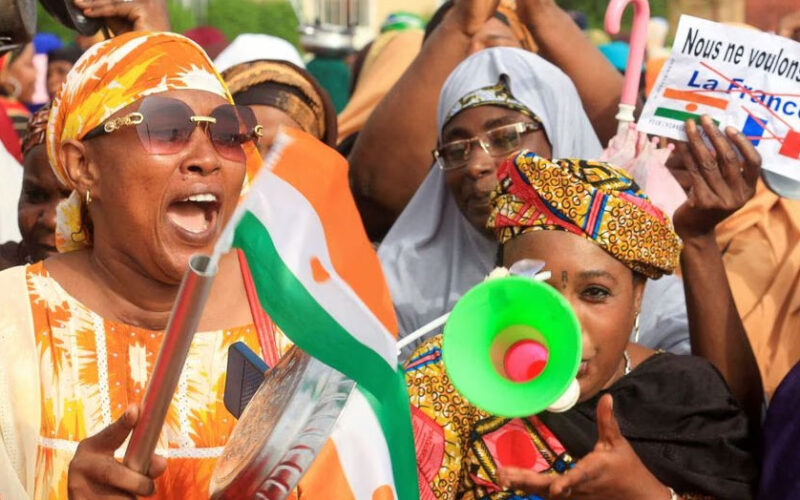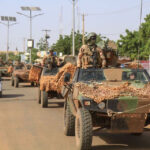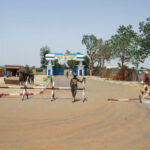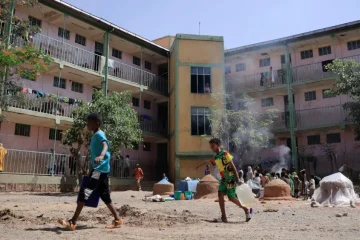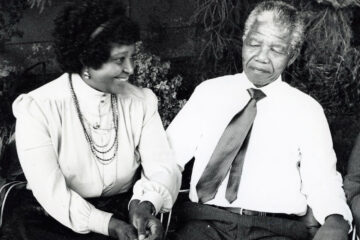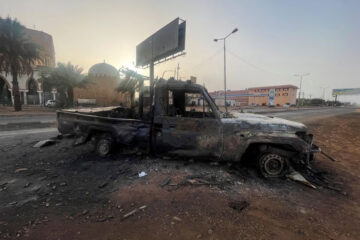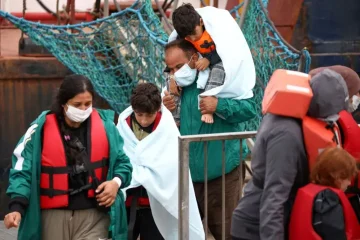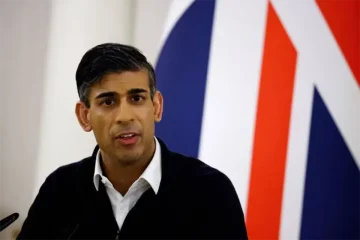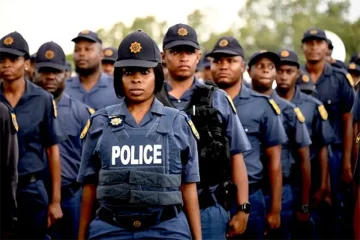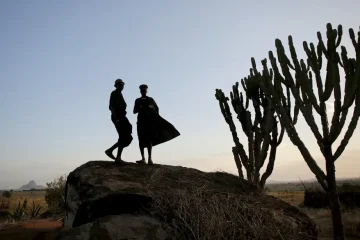FRANCE’S decision to pull 1,500 troops from Niger leaves a gaping hole in Western efforts to counter a decade-long Islamist insurgency and could bolster Russian influence across the vast, insecure scrublands of West Africa, analysts and diplomats said.
Niger was the West’s last key ally in the central Sahel region south of the Sahara Desert until a July 26 coup brought in a military junta which called for France to leave.
France’s forces have already been kicked out of neighbouring Mali and Burkina Faso following coups in those countries, weakening its influence in its former colonies amid a wave of anti-French sentiment.
Now, its oversight that two years ago spanned hundreds of thousands of square miles of terrain has all but evaporated.
“The public in West African countries has become increasingly wary of hosting a Western military presence,” said Mucahid Durmaz, a senior analyst at London-based risk firm Verisk Maplecroft. “The French exit from Niger will push Western troops further away from the central Sahel.”
The withdrawal, announced by French President Emmanuel Macron in a television interview on Sunday night, was welcomed in Niger, whose junta described it as a “new step towards Niger’s sovereignty”.
“Imperialist forces are no longer welcome on our national territory,” it said in a statement.
But it worries security analysts and diplomats who say a spike in insecurity in Mali and Burkina Faso after their coups could be a sign of what awaits Niger, where militants have already killed hundreds of civilians in recent years. Come December, it will no longer be able to rely on French aerial reconnaissance, intelligence or ground support.
Mali’s junta has teamed up with mercenaries from Russia’s Wagner Group, accused by the U.N. of human rights abuses. Russia has also courted leaders in Burkina Faso.
Much now depends on what the United States will do.
It has invested about $200 million in drone bases in northern Niger manned by more than 1,000 troops that let it keep an eye on a gateway for migrants, traffickers and militants in the Sahara Desert towards Libya.
The U.S. has refused to call the Niger takeover a coup, meaning it can avoid severing ties for now. Officials remain cagey about Washington’s next move.
“We have not made any significant changes to our forces’ posture,” U.S. Secretary of Defence Lloyd Austin said in Nairobi on Monday. Washington wanted a peaceful resolution and the “preservation of Niger’s democratically elected government,” he added.
Unlike France, American forces do not actively engage with Niger forces against Islamist militants and could be open to working within a transition to civilian rule. Still, a Western presence would at least be on the ground if they remain.
Niger is “seen as an important hub for intelligence gathering and kind of security assistance. I think they won’t want to give that up,” said Nathaniel Powell, West African analyst at the Oxford Analytica consulting firm.
In an election year, U.S. President Joe Biden will probably be unwilling to provide an opportunity to draw parallels with Washington’s Afghanistan withdrawal, he said.
A DIFFERENT AFRICA
Two weeks ago, Macron gave a bullish speech to his ambassadors vowing to defend Niger’s democracy.
But his position became untenable. This month, the French ambassador was holed up at the embassy in Niamey after Macron ignored a junta deadline for him to leave. Tens of thousands of people gathered outside the French military base in the capital calling for the troops’ departure. Protesters burned French flags and waved Russian ones.
“It’s a different Africa now. It’s an Africa that has awoken and risen up,” Niamey resident Aissami Tchiroma said on Monday. “France, which is said to be a state where there is the rule of law … behaves like perfect gangsters.”
On Sunday night, buried in the middle of an interview on inflation, petrol and immigration, Macron said Niger no longer wanted to fight terrorism, and so France would withdraw. The ambassador has also left.
It’s a long fall from when France beat back Islamist fighters who had taken control of northern Mali in 2013, much to the delight of local residents.
“I think for the French, it’s more a marker of defeat than anything else,” Nathaniel Powell, West African analyst at Oxford Analytica, said.
CHAD TO GULF OF GUINEA
France has few options. One would be to send troops to neighbouring Chad, where it has about 1,000 troops.
But Chad is hundreds of miles from the centre of the jihadist insurgency and has its own security problems and simmering anti-French sentiment.
As part of its regional rethink, Paris had sought more concerted European help.
But there is no particular desire from European allies to bail out France, diplomats from four European partners with previous operations in the Sahel said.
Countries that had once offered to send troops to Mali, notably in eastern Europe, have no desire to do so now with the ongoing war in Ukraine. Many had no idea that Macron would announce the Niger withdrawal.
Two diplomats said there was also a reluctance at this stage from European partners such as Italy and Germany, whose troops provide training and logistical support in the country, to withdraw from Niger.
Their hesitancy is linked to the growing migration crisis in Europe. Many migrants make their way through Niger before crossing the Sahara towards the Mediterranean Sea. Cutting ties with Niamey would be detrimental to policing those routes, they said.
That does not mean France will abandon the region altogether.
Concerns remain about the Islamist threat heading towards coastal countries, including regional economic powerhouses such as Ghana and Ivory Coast.
The idea is that these countries could make a formal request for military assistance, but that would only be for training, logistics and some intelligence, diplomats and military officials said.
Meanwhile, French bases in Ivory Coast, Senegal and Gabon are all being transformed into co-managed operations to downplay Paris’ role. Military schools and training academies will become much of the focus for France, the officials said.
“The Macron administration has encountered numerous setbacks on the African continent since 2017, yet none have prompted a reevaluation of strategy or thinking or personnel,” said Jalel Harchaoui, associate fellow at the Royal United Services Institute think tank in London.

